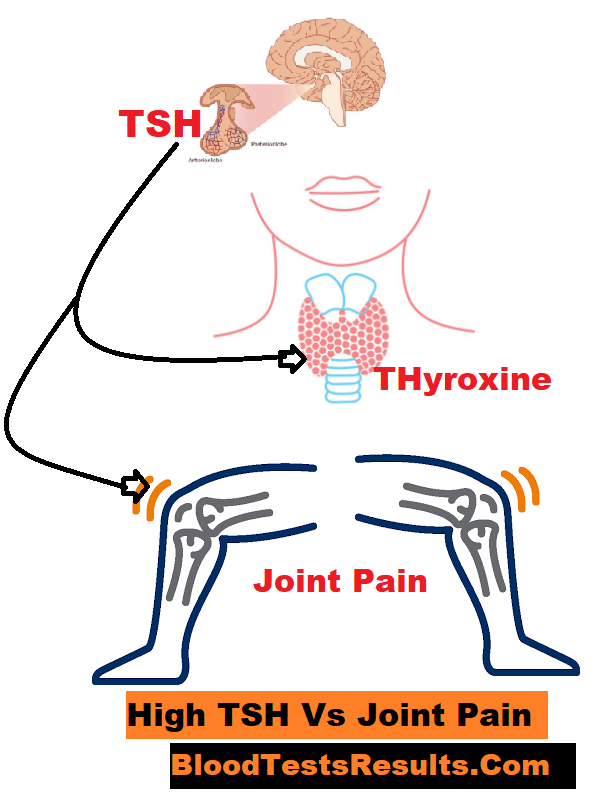Q: My mother takes thyroxine tablets but after many months she feels pain in her knees. how can I solve the reason for knee pain using medical tests?
Answer:
Thyroxine tablets are the treatment for the under-active thyroid gland, a medical condition in which the thyroid gland secretions are lower than the healthy level, also called hypothyroidism in medical terms.

When the thyroid gland is under-active, the pituitary gland, also called the master gland, will release TSH hormone as normal feedback to stimulate the thyroid gland, and therefore the proteins deposit in the tissues excessively, because the thyroid gland is responsible for the management of proteins, thus these excessive precipitated proteins cause pain in joints and knees.
So that, the joint and knee pain when taking thyroxine-replacement-therapy is not due to the pills themselves, nevertheless, it is due to high TSH levels.
Conclusion:
To know why you have joint and knee pain when on thyroxine treatment you may do thyroid function blood tests (TSH, FT4, and FT3), it might reveal that TSH level is high which can lead to precipitation of proteins and cause pain in joints and knee.
